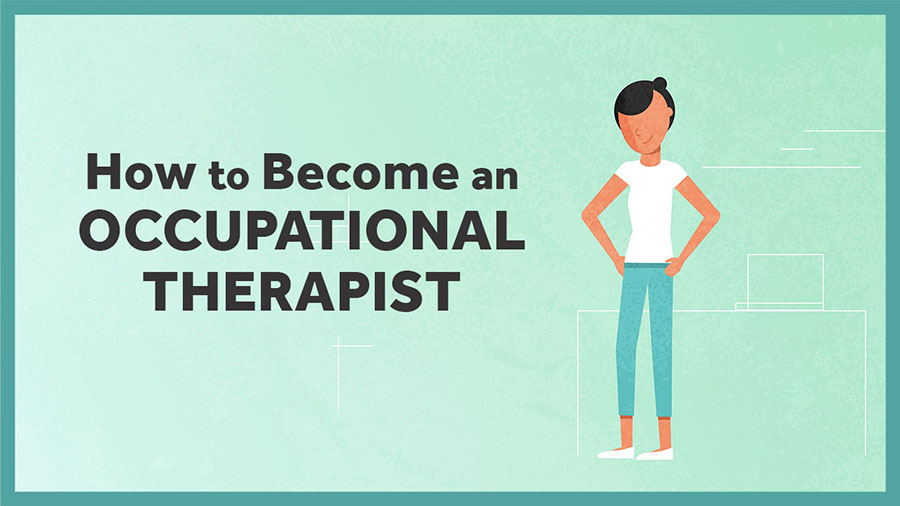If you’re looking for information about therapists, you’ve come to the right place. In this ultimate guide, we will discuss everything from what a therapist is, to how to find one that’s right for you. We’ll also talk about the different types of therapy available, and what to expect from your sessions. So whether you’re just starting your search or you’re already in treatment, read on for the inside scoop.
Contents
What Is Therapist?
 Therapist is people who provide psychological therapies to individuals, families, and groups. They work in a number of settings including hospitals, schools, prisons, and private practices. Therapists may also conduct research or teach at universities. They always have a degree in psychology, counseling, or another relevant field.
Therapist is people who provide psychological therapies to individuals, families, and groups. They work in a number of settings including hospitals, schools, prisons, and private practices. Therapists may also conduct research or teach at universities. They always have a degree in psychology, counseling, or another relevant field.
This term therapist is often used to refer to any type of mental health professional, including psychiatrists, psychologists, and counselors. However, the term is most commonly used to describe therapists who provide talk therapy. It also gives a more specific name to the therapist, who is then known as a “clinical psychologist.”
Sometimes a therapist is used to describe people who provide therapy services, even if they don’t have a degree in psychology. For example, pastoral counselors and social workers may also provide therapy services but are not typically considered therapists.
Types of Therapists

There are many different types of therapists. Some specialize in a certain area, such as trauma or substance abuse. Others may have a more general focus. It is important to find the right therapist for you. Some of these types are:
Clinical Psychologist
A clinical psychologist is a type of therapist who has a doctoral degree in psychology. They are trained to do psychological testing and assessment, as well as therapy. This type may have a general focus or specialize in a certain area, such as trauma. There can be many different people who call themselves clinical psychologists, so it is important to do your research and find the right one for you.
Licensed Professional Counselor
A licensed professional counselor is a type of therapist who has a master’s degree in counseling. They are trained in therapy, as well as assessment and diagnosis. LPCs often have a general focus, but some may specialize in certain areas. This type of therapist is found in many different settings, such as schools, hospitals, or private practice. These are those who offer counseling services to the public.
Marital and Family Therapist
A marital and family therapist is a type of therapist who has a master’s degree in marriage and family therapy or a related field. They are trained in working with families and couples. MFTs often have a general focus, but some may specialize in certain areas. They may work in private practice, hospitals, or schools.
Social Worker
 A social worker is a type of therapist who has a master’s degree in social work. They are trained in working with individuals, families, and groups. Social workers often have a general focus but some may specialize in certain areas. They may work in many different settings such as hospitals, clinics, or private practice. Some social workers also have their LCSW (licensed clinical social worker) which allows them to do therapy with the public.
A social worker is a type of therapist who has a master’s degree in social work. They are trained in working with individuals, families, and groups. Social workers often have a general focus but some may specialize in certain areas. They may work in many different settings such as hospitals, clinics, or private practice. Some social workers also have their LCSW (licensed clinical social worker) which allows them to do therapy with the public.
Psychiatrist
A psychiatrist is a type of therapist who has a medical degree and specializes in mental health disorders. Psychiatrists can prescribe medication and often have a general focus when it comes to therapy. These therapists often work in hospitals or clinics.
Occupational Therapist
An occupational therapist is a type of therapist who helps people with physical disabilities return to their regular lives. OTs often have a graduate degree in occupational therapy. They are trained in helping people regain skills that they need for everyday life, such as dressing themselves, cooking, or using the bathroom. OTs may work in hospitals, clinics, or schools.
Mental Health Nurse Practitioner
A mental health nurse practitioner is a type of therapist who has had specialized training as a nurse practitioner. They work with people who have mental health issues. These nurses often have a specialty area, such as substance abuse or eating disorders.
Spiritual Director
 A spiritual director is a type of therapist who helps people explore their spirituality. They may have a degree in theology or another related field. Spiritual directors often have a general focus but some may specialize in certain areas. They may have a private practice or work in a religious setting. Sometimes these directors are also ordained ministers.
A spiritual director is a type of therapist who helps people explore their spirituality. They may have a degree in theology or another related field. Spiritual directors often have a general focus but some may specialize in certain areas. They may have a private practice or work in a religious setting. Sometimes these directors are also ordained ministers.
Characteristics of Good Therapist

There are many characteristics of a good therapist. Some of these are:
Passion About Work
Work is the foremost important thing for a good therapist. They should be passionate about their work and helping others. They may have their own personal struggles but should never let that affect their work. Sometimes, therapists may have to put their own feelings and thoughts on the back burner in order to help their clients.
Good Communication Skills
Therapists must be able to communicate effectively with their clients. They should be able to understand what the client is saying, as well as relay information back accurately. Good communication helps build trust between the therapist and client. These people skills are also beneficial in other areas of life.
Empathy
A good therapist should be able to feel what their client is feeling. They should be able to understand and put themselves in their client’s shoes. This can help the therapist provide better support and guidance for the client. They may have their own personal beliefs, but should never force them onto the client.
Open-Minded
 Therapists should always be open-minded and accept their clients for who they are. They should never judge a client or try to change them. The therapist’s job is to help the client find their own solutions to their problems. This can only be done if the therapist is willing to listen and explore all options with the client.
Therapists should always be open-minded and accept their clients for who they are. They should never judge a client or try to change them. The therapist’s job is to help the client find their own solutions to their problems. This can only be done if the therapist is willing to listen and explore all options with the client.
Compassionate
Good therapists should have compassion for their clients. They should understand that many of these people are going through a tough time and may not know how to handle it themselves. The therapist’s role is to provide support and guidance during this difficult time. They should also be understanding if the client does not want to talk about a certain topic.
Non-Judgemental
Therapists should also be non-judgemental. This means that they will not judge their clients for the choices they have made in life. They should accept the client for who they are and provide guidance without criticism. The therapist’s job is to help the client, not to judge them. They have probably made some mistakes in their life, but that does not mean they are a bad person.
Trustworthy
 A good therapist should also be trustworthy. This means that they will keep the client’s information confidential and will not share it with anyone else without permission. The therapist should also be reliable and always show up for appointments on time. They should never cancel or reschedule at the last minute. It is also important that therapists have a good work ethic. They should be reliable and always show up for their appointments on time. They should also be willing to put in the extra effort to help their clients. This includes doing research on certain topics if needed or attending workshops and conferences.
A good therapist should also be trustworthy. This means that they will keep the client’s information confidential and will not share it with anyone else without permission. The therapist should also be reliable and always show up for appointments on time. They should never cancel or reschedule at the last minute. It is also important that therapists have a good work ethic. They should be reliable and always show up for their appointments on time. They should also be willing to put in the extra effort to help their clients. This includes doing research on certain topics if needed or attending workshops and conferences.
Hard-Working
Sometimes, therapists may have to put in long hours to help their clients. They should be willing to do whatever it takes to help their client reach their goals. This includes working weekends, evenings, and holidays if needed. Therapists should also be willing to take on additional cases if they have the time and resources available. It may be difficult, but it is worth it to see the client reach their goals.
License
License is one of the most important things for a therapist. They should be licensed in the state where they are practicing. This ensures that the therapist has gone through the proper training and is qualified to provide therapy services. It also shows that the therapist is professional and takes their job seriously.
Certification
Therapists should also be certified in their area of practice. This means that they have completed additional training and are knowledgeable about the latest research findings. Certification helps ensure that therapists are up-to-date on the latest treatments and can provide effective services to their clients.
Tips While Consulting Therapist

There are many different tips that one can remember while consulting with a therapist. Some of these are:
Be Honest
One should always be honest with their therapist. This means being truthful about what is going on in your life, both the good and the bad. Therapists are professionals who can help you work through whatever issues you may be facing. You should always know that you can trust them.
Make Commitment
It is important to make a commitment to working with your therapist. This means attending all of your appointments, and being as open and honest as possible. If you are not able to commit to this, it may be best to find another therapist who can better meet your needs. This can also help ensure that you get the most out of your therapy sessions.
Be Patient
 Therapy can be a long process, and it is important to be patient. This means giving yourself time to work through your issues, and not expecting immediate results. Your therapist will help you set goals, but remember that it takes time and effort to meet them. Sometimes there are setbacks, but it is important to remember that you are working towards a larger goal.
Therapy can be a long process, and it is important to be patient. This means giving yourself time to work through your issues, and not expecting immediate results. Your therapist will help you set goals, but remember that it takes time and effort to meet them. Sometimes there are setbacks, but it is important to remember that you are working towards a larger goal.
Be Open-Minded
It is also important to be open-minded when working with a therapist. This means being willing to try new things and explore different perspectives. If you are not willing to do this, therapy may not be the best option for you. Remember that your therapist is there to help, and they want what is best for you. There can be a lot of growth and change when working with a therapist, so be open to the experience.
Be Honest
One can also practice honesty when working with a therapist. Honesty is the key to success in any form of relationship, including counseling relationships. It shows that one trusts and respects their therapist which is essential for a productive therapeutic alliance. It may be difficult to be truthful about certain aspects of one’s life, but it is worth the effort.
Take Notes
 You should always take notes during your therapy sessions. This will help you to remember what was discussed, and it can also be helpful to refer back to later on. Plus, it is just good practice to take notes in any situation It can be helpful to have a designated notebook for your therapy sessions, or to use a note-taking app on your phone. This way, you can always have your notes with you wherever you go.
You should always take notes during your therapy sessions. This will help you to remember what was discussed, and it can also be helpful to refer back to later on. Plus, it is just good practice to take notes in any situation It can be helpful to have a designated notebook for your therapy sessions, or to use a note-taking app on your phone. This way, you can always have your notes with you wherever you go.
Make Prior Appointments
One should always make prior appointments with their therapist. This will help to ensure that you have enough time to discuss any issues that may be on your mind, and it also shows that you are taking your therapy seriously. If something comes up and you are not able to attend a session, be sure to notify your therapist as soon as possible. It can also be helpful to bring a list of questions or concerns to your next session. This way, you can make the most out of your time with your therapist.
Try New Things
Therapy is a great opportunity to try new things. This means trying different exercises, techniques, or therapies. If you are not sure if something will work for you, ask your therapist. They can help you figure out what may be the best course of action for you. Plus, it never hurts to experiment a little in order to find what works best for you. It can also be helpful to keep a journal of your experiences during therapy. This can help you track your progress and see how far you have come.
How To Become Therapist?

Becoming a therapist is one of the noblest professions that you can choose in your life. It is a career that allows you to help others and make a difference in their lives. There are many different ways that you can become a therapist. The best way to become a therapist is by getting your degree from an accredited school.
There are many different types of therapy degrees that you can get. You can get a degree in counseling, social work, psychology, or marriage and family therapy. Once you have your degree, you will need to get licensed in order to practice as a therapist. Each state has its own licensing requirements, so be sure to check with your state board of licensure for more information.
Once you have your license, it’s time to start your career. There are many different ways to become a therapist. You can work in a clinic, hospital, private practice, or school. You can also work with clients one-on-one or in groups. The best way to find out what type of therapy you want to do is to try it out. Talk to your friends and family about their experiences with therapy and see if there is a particular type that interests you.
The great thing about being a therapist is that you can specialize in any area that you want. If you’re interested in working with children, then you can specialize in child therapy. When you are interested in working with couples, then you can specialize in marriage and family therapy. If you’re interested in working with adults, then you can specialize in counseling or psychology.
Benefits of Visiting Therapist

There are many benefits of visiting a therapist. Therapists can help individuals deal with a variety of problems. These are such as:
Helps With Anxiety
Therapists can help with anxiety by teaching individuals different relaxation techniques and coping mechanisms. Therapists can also help to identify the root cause of the anxiety and work with the individual to address it. This can be incredibly helpful in managing anxiety long-term.
Helps With Depression
Therapists can also help those who suffer from depression. They will typically work to increase positive emotions and decrease negative ones.
This can be done through a variety of methods, such as therapy sessions, medication, or even both. Therapists are often able to help people get their lives back on track when they are struggling with depression.
Helps With Relationship Issues
Many therapists are trained in relationship counseling. If you are having issues with your partner, visiting a therapist can be incredibly helpful. They will help you to communicate better and work through the issues that you are facing. It can also help to improve your relationship in the long term.
Helps With Substance Abuse
Therapists can also help those who are struggling with substance abuse. They will work to identify the root cause of the addiction and help the individual to overcome it. This can be a difficult process, but it is often very successful.
Makes You Feel Better
Simply talking to a therapist can make you feel better. This is because it allows you to talk about your problems and feelings in a safe and secure environment. It can be very therapeutic to express yourself in this way. You may also find that you feel more understood after talking to a therapist. It can also be helpful to get feedback from them about your problems.
Limitations of Visiting Therapist

There are many limitations of visiting a therapist. Some of these are:
Cost
When someone visits a therapist, the cost of the sessions can be prohibitive. This means that some people cannot afford to see a therapist on a regular basis. Sometimes these people may need to see a therapist in order to deal with a mental health issue, which can be frustrating.
Location
Another limitation of visiting a therapist is that the person has to go to the therapist’s office. This means that the person cannot get help if they are not near a therapist’s office. Additionally, it can be difficult for people who have transportation issues or who live far from a therapist’s office.
Time Availability
Therapists often have very busy schedules and their patients sometimes have trouble getting an appointment at a time that works for them. This can be frustrating, especially if someone is dealing with a mental health crisis and needs help right away. It may also mean that people have to take time off from work in order to see a therapist.
Credentials
Some people may be hesitant to visit a therapist because they are not sure if the therapist is qualified or licensed. This can be a valid concern, as some therapists do not have the appropriate training and experience to deal with certain mental health issues.
Confidentiality
People who visit a therapist often worry about their privacy and whether their information will be kept confidential. While most therapists do keep patient information confidential, there are some cases where this may not be possible. For example, if someone is suicidal or poses a danger to themselves or others, the therapist may need to share information with other professionals in order to ensure the person’s safety.
Therapist-Patient Relationship

The relationship between a patient and their therapist is one built on trust and respect. The therapist should provide a safe space for the patient to share their thoughts and feelings without fear of judgment or ridicule. The therapist also needs to be open-minded and non-judgmental, as some of the things a patient may say can be upsetting or disturbing.
The patient should be very honest with their therapist and should always feel comfortable asking questions. If the patient does not like or trust their therapist, they should seek out a new one.
Even If they have any concerns about the therapy sessions, the patient can talk to their therapist about these concerns. If they are not happy with how things are going, they can also terminate the therapy sessions. It may also be helpful to talk to a friend or family member about the therapist and get their opinion.
Sometimes these limitations prevent people from getting the help they need. However, there are many qualified therapists who can help people deal with a wide range of mental health issues.
Conclusion
Therapist as a profession is one that has been around for centuries. It is a noble and respectable profession that helps people with all sorts of issues and problems. If you are looking for a therapist, it is important to understand what they do and how they can help you.
Therapists come from different backgrounds and have different specialties. Some therapists focus on helping people deal with specific issues, such as addiction or depression. Others work with families or couples to improve communication and resolve conflicts. Therapists also vary in their techniques; some use cognitive-behavioral therapy while others may use more holistic approaches like meditation or yoga.
No matter what your needs are, there is likely a therapist who can help you meet them. Do your research, and be sure to interview several therapists before making a decision. With the help of a good therapist, you can overcome any challenge life throws your way.
A Word From Therapy Mantra
Your mental health — Your psychological, emotional, and social well-being — has an impact on every aspect of your life. Positive mental health essentially allows you to effectively deal with life’s everyday challenges.
At TherapyMantra, we have a team of therapists who provide affordable online therapy to assist you with issues such as depression, anxiety, stress, workplace Issues, addiction, relationship, OCD, LGBTQ, and PTSD. You can book a free therapy or download our free Android or iOS app.


